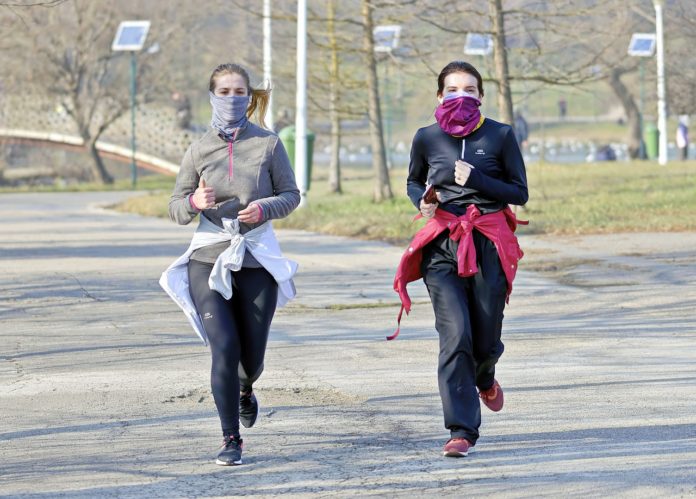Population-wide facemask use could reduce transmission of COVID-19 and prevent a second wave of the disease
Population-wide use of facemasks keeps the coronavirus ‘reproduction number’ under 1.0, and prevents further waves of the virus when combined with lockdowns, suggests a modelling study.
The research suggests that lockdowns alone will not stop the resurgence of SARS-CoV-2, and that even homemade masks with limited effectiveness can dramatically reduce transmission rates if worn by enough people, regardless of whether they show symptoms. The findings were published in the Proceedings of the Royal Society A.
“Our analyses support the immediate and universal adoption of facemasks by the public. “If widespread facemask use by the public is combined with physical distancing and some lockdown, it may offer an acceptable way of managing the pandemic and re-opening economic activity long before there is a working vaccine,” said lead author, Dr Richard Stutt, from the University of Cambridge.
routine facemask use by 50% or more of the population reduced COVID-19 spread to an R less than 1.0, flattening future disease waves
The new coronavirus is transmitted through airborne droplets loaded with SARS-CoV-2 particles that get exhaled by infectious people, particularly when talking, coughing or sneezing.
For the study, researchers worked to link the dynamics of spread between individuals with population-level models, to assess different scenarios of facemask adoption combined with periods of lockdown.
The study found that if people wear masks whenever they are in public it is twice as effective at reducing ‘R’ than if masks are only worn after symptoms appear. The reproduction or ‘R’ number is the number of people the virus is passed onto by an infected individual.
In all modelling scenarios, routine facemask use by 50% or more of the population reduced COVID-19 spread to an R less than 1.0, flattening future disease waves and allowing less-stringent lockdowns.
The team investigated the varying effectiveness of facemasks. Previous research shows that even homemade masks made from cotton t-shirts or dishcloths can prove 90% effective at preventing transmission.
The study suggests that an entire population wearing masks of just 75% effectiveness can bring a very high ‘R’ number of 4.0 to all the way down to under 1.0, even without aid of lockdowns. In fact, masks that only capture a mere 50% of exhaled droplets would still provide a “population-level benefit”.
Cultural and even political issues should not stop people wearing facemasks, so the message needs to be clear: my mask protects you, your mask protects me, added the researchers.
Prof Chris Gilligan, coauthor from Cambridge’s Epidemiology and Modelling Group, added: “These messages will be vital if the disease takes hold in the developing world, where large numbers of people are resource poor, but homemade masks are a cheap and effective technology.”
